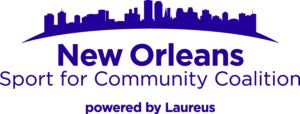New Orleans Youth Sports Summit

What if non-profits, government, schools, philanthropy, business, pro sports governing bodies and leagues, and the media worked together to apply the best strategies for changing the city through sport and physical activity?
What if these strategies addressed all the key elements of both increasing levels of sport and physical activity while also achieving many important social development outcomes?
What if the best learnings from collective impact and the global sport for development movement were leveraged to ensure change that is comprehensive and lasting, resulting in improved health, better education, more equitable employment and economic opportunity, and more prosperous and integrated communities?
The New Orleans Sport for Community Coalition, alongside Laureus Sport for Good USA and The Aspen Institute, hosted a community summit discussing the work currently happening in New Orleans to move these questions from hypotheticals to reality.
Over the course of the summit, participants addressed the targeted use of sports-based youth development in New Orleans, learned from collective impact experts about how to move the work forward, and charted concrete actions for how supporters from diverse sectors can work together to improve the lives of children and youth through the transformative power of sport.
Featured speakers included ESPN’s Michael Smith, and the Aspen Institute’s President & CEO Walter Isaacson, Sports & Society Program executive director Tom Farrey, and program associate Risa Isard, among others.
The event built off the report that the Laureus Sport for Good Foundation and the Aspen Institute’s Project Play partnered on in 2015, Orleans Parish State of Youth Sports and Physical Activity.
Prior to the event, Michael Smith spoke with Tom Farrey in this published interview, “Sports Made Me a Cool Nerd.”
Email Risa Isard with any questions (risa.isard@aspeninstitute.org).